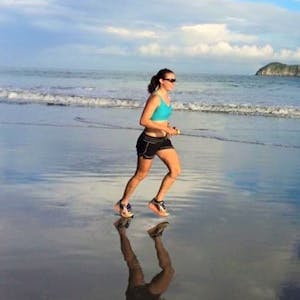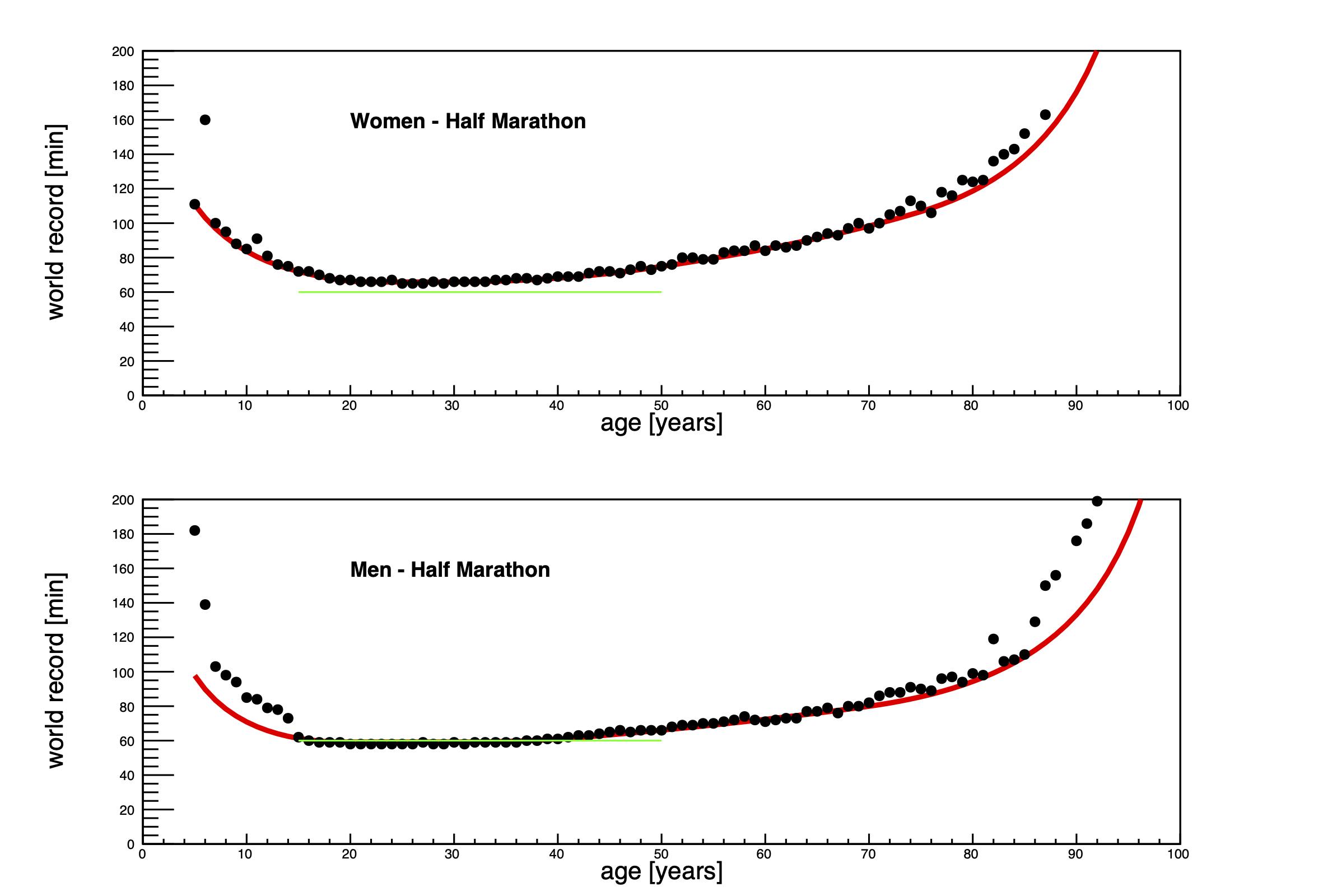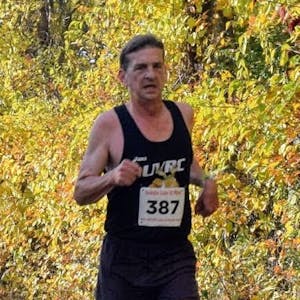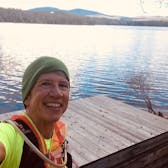Training Later in Life?
Got a question for the coaches? Send it to newsletter@uppervalleyrunningclub.org and I'll send it on!
I’ve been having conversations with friends who are now middle aged like many of us, and who are getting back into fitness for the first time in many years. Seems like I often say that training now isn’t like we used to do it in our 20s. We can’t go as hard each day, need to consider recovery more, etc. But I wonder, is there much difference in the way coaches coach an athlete in their 20s compared to an athlete 20 or 30 years older? Assuming the same type of fitness goal.
— Paul
Carly Wynn
I see this answer and yes and no. Yes, coaching an athlete changes as the athlete ages in that their training plan and additional supportive & recovery activities will change, compared with their training plan a decade ago. No, in that the same concepts and principles apply: coaching is meant to support the athlete's physiologic adaptation and overall wellbeing, no matter their age, and coaching style varies between athletes for many reasons that have little to do with age.
Training (and coaching) isn't about learning the objectively "best" workouts and doing them as often is possible. It's about finding the combination of workouts and supporting activities (recovery activities) that prompt the body to adapt in the desired way. That adaptation is going to look a little different for every athlete due to a variety of factors. Age is one factor that influences which stimuli will be most adaptive. Workouts are one input that may be adjusted.
In general, recovery time increases as we age. At face value, that is often read as: "aging athletes can't do as many hard workouts as close together as they used to," but phrasing it that way sounds a bit depressing, and overlooks the core principle: time off is a recovery resource that we actively employ to help us adapt optimally. Faced with any stressor above baseline, as we age the body is going to require more and/or different resources to return to baseline, or to strengthen to exceed previous baseline. That includes more time. Other inputs (besides the workouts and the time between them) may also require adjustment as we age: nutrition, sleep, resistance training, and hormone/vitamin supplementation needs, to name a few.
It is also important to note that all of these needs may also change in response to changes other than aging, i.e; excessive external stress, injury, illness, and the systemic changes that come with specific points in aging, such as the onset of puberty and menopause. Any one of these factors may also put an athlete at greater risk for injury or illness, which should always be considered in a training plan. Along with aging also comes the responsibilities and general lifestyle of adulthood, so if you, reader, are noticing that you need to pay more attention to recovery activities than you used to, it may be less a result of chronological age, and more of the additional stresses that come with being middle aged, that 20 year olds may be free of.
So, yes, a training plan for a 45 year old looking to run their first marathon and the plan of a 20 year old with the same goal will look different, but age will be only one reason they look different, and they also will have a lot in common. The basic methods of coaching will be similar. All athletes will, hopefully, be encouraged by their coach to pay attention to their body's cues, and that is my advice to you, reader. If you notice that your training plan from 15 years ago leaves you feeling drained now, a good starting point would be to space your intensity sessions (and potentially your long runs) a little farther apart than you are currently doing. (I will also say, while I have the chance, that although resistance training is important for all athletes, it becomes more important as we age, so make sure you're strength training!)
When selecting a coach, it is important to consider what their specialty is, and whether that aligns with your priorities. Many coaches work with athletes of all ages, but if you want specific attention regarding an age-based consideration, find a coach with some expertise in that area. A first conversation with a potential coach can tell you a lot about where their experience and expertise is.

Carly Wynn
Carly Wynn is a personal coach at www.CarlyOutside.com, and can be reached at Carly@CarlyOutside.com
Tim Smith
This is such a great question because there are so many ways of answering it! So I am just briefly going to talk about aging and running, training and lifestyle, and finally how have coaches evolved.
So, you are no longer 24 years old, what can you expect out of your running? (Eliud Kipchoge was 34 when he broke the 2:00:00 marathon barrier.)
Aging and Running
First, I've included one of my favorite plots about running and aging; this is the data on which "Age Graded Scores" are based. The figure below is the world record for each age for the half-marathon. The red curve is the line that age-graded scoring uses. The green line is one-hour, and I included it as a convenient reference to guide the eye. The takeaway here is that as we get older, we do get slower, but not that much.

Training and Lifestyle
I find that the greatest change as I age has to do with my lifestyle. An older athlete has the potential to be pretty fast. But to be on top of your game as a middle ager is a lot more complex than in your youth. Recovery from a hard workout AND from injuries takes a lot longer. But also, you may be balancing pieces of your life then just your Friday homework assignment and that midterm paper.
Since I don't know which Paul asked the question, I'll compare myself at age 20, an athlete in college, to myself at age 60, and an athlete near a college.
In my best/fastest years of competition I would do double workouts during certain phases of my training, as well as extra strengthening and flexibility sessions. I was logging between 70 and 90 miles a week. My life, seven days a week, revolved around my team. It was 100% of my social life. It was not exhaustive, rather it was just the way I filled my time.
It had a very different time structure. You can go from the fastest kid on the playground to the county championships in weeks when you are 14. When I was in high school and college every season was about 10-12 weeks, with a break and then starting again, always moving upward.
And then life took a turn, and I became a "responsible" adult with a career, a wife and a family and it would be hard for me to slip off and spend 3 hrs a day training. Life has lots of parts, and there are now a lot of people who need my attention. But also, that whole time sequence is different. The season never really starts and ends, and my "improvements" are a lot more gradual. The expectations are about participation and not championships.
Changes in Coaches
Finally, a word about coaches. Coaches come in a whole range of styles/experiences/ability, but for most of us, our idea of what a coach is is based on the coaches we encountered as a teenager. And through the eyes of teenagers. The main job of those coaches was to keep teenagers with too much energy out of trouble - and to push the middle runner on the time towards better performances.
In high school and college I had three significant coaches. The first was inspirational, worked me harder than ever and got the best performances out of me. The second knew little about coaching, and I'll skip those details. The third was a "modern coach", who understood exercise physiology a lot more than the others. My first point is that a few decades ago, in my opinion, coaching was all over the place, so it is hard to know what your experience was. Since I recently attended the USATF coaching school, I think modern coaches have a more uniform knowledge base than in the past, or at least they ought to.
That third coach, Rich Ceronie, who just retired from University of New Mexico, was willing to take over every hour I could offer him; running, strengthening, flexibility, diet. He was a young coach then, and I think if he was older and more confident, he would have been willing to tell me when to stop studying, start sleeping and exactly which days I was to do double workouts and when to recover.
For my middle-life coaching experience I rely upon my time with Central Park Track Club, which in many respects is a lot like UVRC's Tuesday Night Track. Tony (the CPTC coach) was dealing with a vast range of age (22-88) and talent (national class runner to people like me). Also, as a club coach he had limited contact hours. CPTC has two workouts a week; TNT, and Thursday night tempo runs. You could also hire Tony as a consultant for further workouts and critique, but he did not expect to take over your life.
The coaching of a post collegiate adult is a tough thing. On one hand there is the simple coaching which Tony leads (and I try to emulate) which is how to make a person's life better when you have only TNT, only one hour a week. And then there is that second level of coaching which involves an all-encompassing attitude (I count Carly among this type of coach). This is a coach who will work with an athlete to tune the lifestyle, so all the work of training can more easily be accomplished.

Tim Smith
Tim Smith is the former two-time president of the UVRC, and coaches winter TNT for UVRC.




